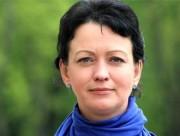The Belarusan National Platform of the EaP CSF issued a statement in connection with the wave of searches in the editorial offices of the Belarusan media and the detention of journalists.
Participation of Belarusan NGOs in EU programs should be extended, Elena Tonkacheva says

Within the scope of the European Dialog on Modernization mechanisms of collective decision-making should be developed.
This opinion in the interview with the EuroBelarus Information Service was given by Elena Tonkacheva, human rights activist and the head of the Legal Transformation Centre (Lawtrend) on the threshold of the roundtable “EU-Belarus puzzle: rethinking European policy towards Belarus” that took place in the European Parliament on June 19. The event took place at the time of increased attention towards Justas Paleckis’s report on situation in Belarus.
“And now, when this discussion is going on, we should provide different opinions about the effectiveness of the programs launched in the EU earlier,” Elena Tonkacheva noted. “Some time has passed; and today we can already share our impressions about these programs, about the pros and cons of their implementation.”
The head of the Lawtrend believes that her main task at the roundtable is to emphasize the necessity to increase the role of the NGOs in the EU programs, and by means of these programs to increase the institutional role of the third sector.
Today’s situation with NGOs’ participation in the European Dialog on Modernization can’t be named favourable. “Within the scope of the modernization dialog program mechanisms of collective decision-making should be created,” she stated. “For now, the existing plans for changing the work of the program do not help much in strengthening the role of NGOs.”
Speaking about Justas Paleckis’ report, Elena Tonkacheva believes that discussion of the assessment of the situation with human rights in Belarus has already become a thing of the past. “Today we should concentrate on recommendations that make considerable part of Paleckis’ report. And in this sense the participation of the Belarusan civil society is of high importance,” emphasized Elena Tonkacheva.
Others
-
Statement of the Belarusan EaP CSF National Platform on solidarity with the civil society of Armenia
The Belarusan National Platform of the Eastern Partnership Civil Society Forum issued a statement on solidarity with the civil society of Armenia.
-
Statement of the BNP in connection with the criminal prosecution of the leaders of the Belarusan independent trade unions
The Belarusan National Platform of the Eastern Partnership Civil Society Forum issued a statement in connection with the criminal prosecution of the leaders of the Belarusan independent trade unions.
-
Final event of project CHOICE — Paving the way to European Year of Cultural Heritage 2018
The final event of the two-year EU funded project CHOICE — Cultural Heritage: Opportunity for Improving Civic Engagement was held on June 6, 2017 at the Committee of the Regions, in Brussels.
-
Heritage is a verb. The results of the CHOICE project were summarized in Minsk (Photos and video)
Does Belarus need a “Public Ministry of Culture” and “Ašmiany Charter” to deal with the historical and cultural sites?








Comments
From farewell to a new Eastern policy and towards a new development
Poland and Germany were both initiators and drivers of a New Eastern policy linked to the Eastern neighborhood and Russia/Soviet Union.